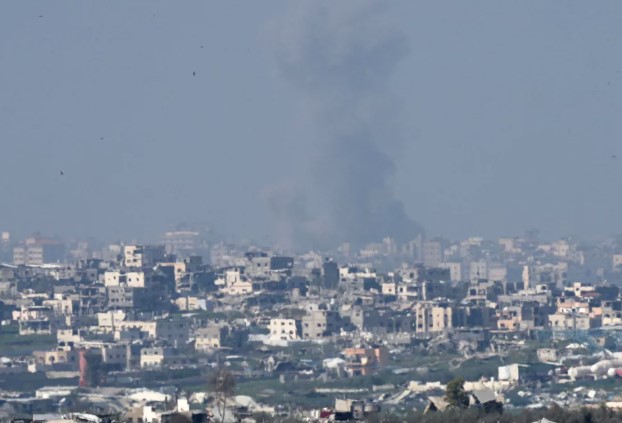The conflict between Israel and Gaza has intensified, leading to widespread destruction and a rising death toll. In the latest wave of airstrikes, over 400 people in Gaza have lost their lives. The airstrikes have targeted residential areas, government buildings, and infrastructure, causing significant damage. The air raids are a response to a series of attacks, and Israel has warned that more military actions will follow.
Escalating Conflict in Gaza
As the violence escalates, thousands of people in Gaza have been forced to leave their homes. Many families have taken shelter in temporary camps, schools, or the homes of relatives. However, safety remains uncertain as explosions continue day and night. The airstrikes have caused panic among civilians, with many fearing for their lives. The streets of Gaza are filled with debris, damaged buildings, and vehicles destroyed by the attacks.
Hospitals in the region are overwhelmed with casualties. Medical teams are struggling to provide treatment due to a shortage of supplies, and some hospitals have suffered damage from the strikes. Many wounded individuals require urgent medical care, but transportation and communication challenges have made it difficult for ambulances to reach them. Power outages have further complicated rescue efforts, leaving many areas in darkness.
Message to Iran: U.S. B-52s Operate with Israeli F-35Is Amid Rising Tensions in Middle East
Widespread Destruction and Civilian Casualties
The continuous airstrikes have left a deep impact on daily life in Gaza. Residential buildings have collapsed, forcing families to search through the rubble for survivors. Streets that were once busy with markets and small businesses are now covered in dust and debris. Essential services like electricity, water, and internet connectivity have been severely affected, making it difficult for residents to stay informed or contact their loved ones.
The strikes have hit densely populated areas, leading to a high number of civilian casualties. Many of the victims include women, children, and elderly people who had no way to escape the bombings. Emergency responders are working around the clock to rescue those trapped under collapsed buildings, but their efforts are hampered by continuous air raids.
West Bank Crisis: Unstable Alliance in Israel’s US Visit Amid Gaza Conflicts
Markets, hospitals, and schools have also suffered damage. Some schools, which were being used as shelters for displaced families, have been hit by airstrikes. In many areas, food and water shortages are becoming a growing concern, as supply routes have been cut off. With shops and bakeries destroyed or closed, families are struggling to find basic necessities. The situation is becoming more desperate as fuel supplies run low, limiting transportation and emergency services.
The psychological toll on civilians is severe. The sounds of explosions, the sight of destroyed homes, and the fear of further attacks have left many people in a state of shock and trauma. Children, in particular, are struggling to cope with the continuous violence, with many showing signs of extreme distress. Parents are doing their best to comfort them, but the uncertainty of what will happen next makes it difficult to provide reassurance.
Israel’s Military Strategy and Global Response
Israel has justified its airstrikes by stating that they are aimed at eliminating threats and preventing further attacks. Military officials claim that they are targeting locations where weapons are stored or launched. However, the high number of civilian casualties has drawn international criticism, with several countries and human rights organizations calling for an immediate ceasefire.
Trump Approves Massive $7.4 Billion Arms Deal with Israel Amid Controversy
The conflict has raised concerns among neighboring countries, who fear that the violence could spread beyond Gaza. Governments across the world are closely watching the situation, with some attempting to mediate and prevent further escalation. However, diplomatic efforts have so far failed to bring an end to the fighting. The ongoing airstrikes have made it difficult for any negotiations to succeed, as the destruction continues to grow.
Several humanitarian organizations are working to provide relief, but their efforts are being hindered by the ongoing airstrikes. Many aid workers are struggling to deliver medical supplies, food, and clean water to those in need. The situation is becoming more critical as hospitals run out of essential medicines, and rescue teams are unable to reach affected areas due to the heavy airstrikes.
The long-term impact of the conflict remains uncertain, but for now, the people of Gaza are facing an immediate crisis. Thousands are left without homes, essential services are disrupted, and families are grieving the loss of their loved ones. The destruction continues as Israel prepares for further military operations, leaving the region in a state of chaos and fear.

